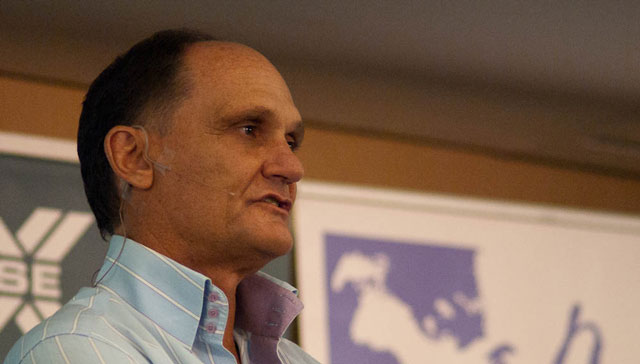
Cell C has filed a complaint at the Competition Commission, accusing larger rivals MTN and Vodacom of anticompetitive behaviour.
“The crux of the complaint relates to the manner in which the dominant incumbents discriminate between their on-net and off-net effective prices, which has a dramatic and direct impact on smaller operators’ ability to acquire new customers,” Cell C said in a statement.
“The two dominant incumbents discount their effective on-net prices substantially while charging a premium for their customers to call off-net. This amounts to discriminatory pricing and is without doubt anticompetitive when adopted by dominant operators,” said Cell C CEO Alan Knott-Craig.
“Customers that call off-net are being penalised often without them realising it. With number portability, customers don’t always know if they are calling on- or off-net anymore, so they don’t actually know what rate they are paying,” he said.
Cell C said in its statement that in “many mobile markets around the world, regulators are opposed to differential on-net and off-net pricing, and in some instances, dominant mobile network operators are facing stiff fines for this kind of discriminatory pricing, which locks in customers and prevents switching”.
It said that at the end of 2012, the French competition authorities imposed a fine on Orange France and SFR of €183,1m in total for anticompetitive practices in the mobile telephony sector, specifically for discriminatory on-net pricing. Furthermore, Papua New Guinea, “in a bid to prevent market failure, introduced regulations that prevent operators from offering discriminatory off- and on-net pricing in 2013”. And the Nigerian regulator called on MTN, the largest operator in the West African nation, to “introduce flat rates (where on-net tariffs are the same as off-net tariffs) as 85% of MTN’s traffic is on-net in that country”.
“All of these cases support Cell C’s position in its Competition Commission complaint,” the company said.
On Wednesday, Knott-Craig told a consumer telecoms conference in Johannesburg that Cell C had spent the past nine months preparing the company’s complaint to the Competition Commission.
He welcomed telecoms regulator Icasa’s announcement on Friday that it planned to reduce mobile termination rates — or wholesale inter-network call fees — saying these rates were the “single biggest cost factor in the entire pricing structure” in South African telecoms.
He said he had hoped Icasa would have given smaller players like Cell C greater asymmetry — rates than benefit them over the larger players — because “the more muscle they give us, the more we can bring [retail] prices down”. Icasa has proposed that from 2014, Vodacom and MTN will pay smaller operators 39c/minute to carry calls onto their networks with a rate of 20c/minute in the other direction.
Vodacom Group CEO Shameel Joosub has taken exception to the level of asymmetry as well as the proposed sharp drop in termination rates in March 2014 – when Icasa wants them to fall from 40c/minute to 20c/minute.
Knott-Craig said termination rates and asymmetry were only the first step. “This is scene one and there will be about seven scenes,” he said. — (c) 2013 NewsCentral Media




